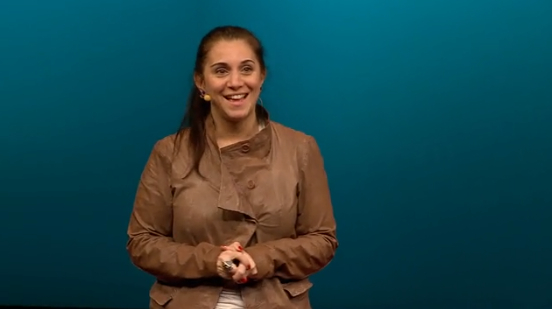 How powerful is text messaging for reaching young people? "I think it might be able to save more lives than penicillin," according to Nancy Lublin CEO and "chief old person" at DoSomething.org, an organization that helps teens effect social change.
How powerful is text messaging for reaching young people? "I think it might be able to save more lives than penicillin," according to Nancy Lublin CEO and "chief old person" at DoSomething.org, an organization that helps teens effect social change.
Lublin made that bold statement in a Feb. 28 presentation to TED University, a pre-conference session at TED 2012 in Long Beach, Calif. A video from that talk is making the rounds this week.
A smartphone "might be a lifeline," Lublin said, after starting her short talk by showing a mobile handset to the audience. And it might be even more powerful for teenagers and young adults.
"The parents in the room know that texting is actually the best way to communicate with your kids. It might be the only way to communicate with your kids," according to Lublin. She said that the average teen sends 3,339 text messages per month, which works out to more than 100 every day. "Unless she's a girl, then it's closer to 4,000," Lublin said.
Seeing the potential of SMS, DoSomething.org last year started shifting its outreach focus to text messaging. "We're now texting out to about 200,000 kids a week," Lublin noted. She said it is 11 times more powerful than e-mail. "Texting has a 100 percent open rate," according to Lublin.
After receiving a text from a girl who had been raped by her father, the organization built a crisis text hotline. "This isn't what we do. We do social change. Kids are just sending us these text messages because texting is so familiar and comfortable to them," Lublin said.
"We could help millions of teens with counseling and referrals," she realized. "That's great. But the thing that really makes this awesome is the data. I'm not really comfortable just helping that girl with counseling and referrals. I want to prevent this [expletive] from happening," Lublin said, in no uncertain terms.
"Think about the data from a crisis text line. There is no census on bullying and dating abuse and eating disorders and cutting and rape," she said. Maybe there have been some academic studies on these subjects, but they can be expensive and take a long time to complete. Anecdotal evidence is plentiful, but it's not scientific.
"Imagine having real-time data on every one of those issues. You could inform legislation. You could inform school policy," Lublin said. "This is really, to me, the power of texting and the power of data."
And the information can help address mental illness and domestic violence before they lead to things like rape, cutting and bulimia.




















